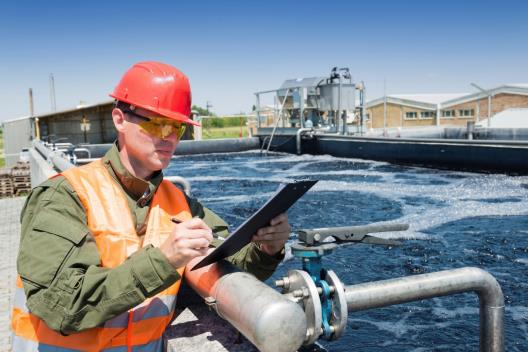COURSE OVERVIEW
TE0267 : Water Resources Management & Policies

OVERVIEW
| COURSE TITLE | : | TE0267 : Water Resources Management & Policies |
| COURSE DATE | : | Sep 16 - Sep 20 2024 |
| DURATION | : | 5 Days |
| INSTRUCTOR | : | Mr. Kyle Bester |
| VENUE | : | Abu Dhabi, UAE |
| COURSE FEE | : | $ 5500 |
| Request For Course | ||
OTHER SCHEDULED DATES
| Date | : | Aug 12 - Aug 16 2024 (5 Days) | Location | : | Abu Dhabi, UAE | Classroom Fee (US$) | : | $ 5500 | Course Info |
Course Description
This practical and highly-interactive course includes practical sessions and exercises. Theory learnt will be applied using our state-of-the-art simulators.
This course is designed to provide participants with a detailed and up-to-date overview of Water, Resources Management and Policies. It covers the key concepts, challenges and importance of sustainable management; the global water cycle, factors affecting water availability and the distribution of fresh water resources; the principles of integrated water resources management (IWRM); analyzing patterns of water demand across different sectors; and the strategies for demand management.
Further, the course will also discuss the impact of climate change on water resources; the strategies and technologies for improving water use efficiency and promoting conservation practices; the water quality standards and indicators; the sources and types of water pollution; the wastewater treatment and reuse; the pollution prevention and control strategies, groundwater quality and aquifer management; the water quality monitoring and assessment; and the international water law and transboundary water management.
During this interactive course, participants will learn the national water policies and legislation, water rights and allocation mechanisms; the public participation, stakeholder engagement, conflict resolution and cooperation in water management; the economic instruments in water policy; the water infrastructure planning and development; the reservoir and dam management, rainwater harvesting and storage, irrigation systems and agricultural water management; the smart technologies for urban water management including smart meters and sensors; planning for and managing waterrelated disasters to ensure continuity of services; the emerging technologies and innovations in water treatment, monitoring and conservation; the interdependencies between water and energy systems and strategies for integrated management; adapting water management practices to cope with climate change impacts; the future challenges and opportunities in water resources management; and developing a water management action plan.
This course is designed to provide participants with a detailed and up-to-date overview of Water, Resources Management and Policies. It covers the key concepts, challenges and importance of sustainable management; the global water cycle, factors affecting water availability and the distribution of fresh water resources; the principles of integrated water resources management (IWRM); analyzing patterns of water demand across different sectors; and the strategies for demand management.
Further, the course will also discuss the impact of climate change on water resources; the strategies and technologies for improving water use efficiency and promoting conservation practices; the water quality standards and indicators; the sources and types of water pollution; the wastewater treatment and reuse; the pollution prevention and control strategies, groundwater quality and aquifer management; the water quality monitoring and assessment; and the international water law and transboundary water management.
During this interactive course, participants will learn the national water policies and legislation, water rights and allocation mechanisms; the public participation, stakeholder engagement, conflict resolution and cooperation in water management; the economic instruments in water policy; the water infrastructure planning and development; the reservoir and dam management, rainwater harvesting and storage, irrigation systems and agricultural water management; the smart technologies for urban water management including smart meters and sensors; planning for and managing waterrelated disasters to ensure continuity of services; the emerging technologies and innovations in water treatment, monitoring and conservation; the interdependencies between water and energy systems and strategies for integrated management; adapting water management practices to cope with climate change impacts; the future challenges and opportunities in water resources management; and developing a water management action plan.
TRAINING METHODOLOGY
This interactive training course includes the following training methodologies:
LecturesWorkshops & Work Presentations
Case Studies & Practical Exercises
Videos, Software & Simulators
In an unlikely event, the course instructor may modify the above training methodology for technical reasons.
VIRTUAL TRAINING (IF APPLICABLE)
If this course is delivered online as a Virtual Training, the following limitations will be applicable:
| Certificates | : | Only soft copy certificates will be issued |
| Training Materials | : | Only soft copy materials will be issued |
| Training Methodology | : | 80% theory, 20% practical |
| Training Program | : | 4 hours per day, from 09:30 to 13:30 |
